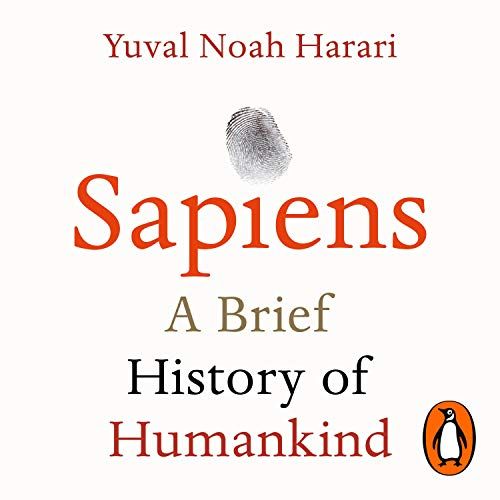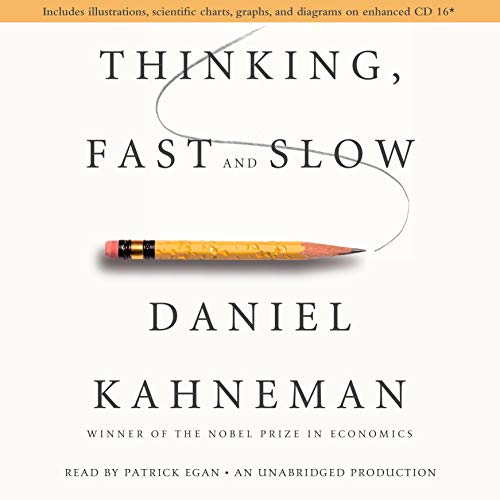Subtraction beats addition every single time.

I love this quote and have it set up as a daily reminder in my productivity mindset. But what does it mean in practice, and why is it true? How does the consideration of this manifest itself in everyday life?
I want to try to answer these questions in this blog article. I don't have the perfect answers to the above questions in my head yet - that still has to mature a bit. However, I already firmly believe that this Core Principle should enjoy the highest priority in everyone's life.

People usually think in addition and maximalism:
- We want as much freedom, options, success, happiness, salary and possessions as possible.
- When we want to convince someone, we add as many arguments as possible - the more arguments, the more convincing!
- Problem-solving is approached by adding something, not removing it. As complexity increases, more management structures are needed, not less.
The question of how much is good enough or whether a problem can perhaps also be solved by removing something is rarely asked (except in the minimalist community).
I also notice this with me again and again:
- When I want to lose weight, it's always about getting more exercise and movement into my day. But instead, I could also focus on training my sense of satiation and eating less. In fact, I learned that hunger follows the activity level; thus, exercise is not the best way to lose weight. I currently have a lot of exercises (4 hours leading to 2000kcal activity calories) but have nothing of it in terms of losing weight because I also eat 4000kcal on average. Of course, other positive health effects like improved cardio fitness and mental relaxation exist. But I'm saying that if it was just about losing weight, I could save myself 4 hours every day and eat 250kcal less than I'm hungry. Think about what you could do with four additional hours per day! That's 180 working days per year.
- In my job, when I pitch something, I like to put all inputs and ideas into a storyline instead of asking myself what the important key messages are in the story. I want to create sophisticated visual architectures and concepts. This is all a waste of time: It's better to have one key slide with well-thought crisp bullet points than dozens of detailed slides. This is because the attention span of listeners is often minimal. For the audience, it is tough to digest longer sentences and visually complex relationships.
- A day feels productive to me when I've been able to check off as much of my checklist as possible. This desire incentivizes a behaviour of picking lots of unessential little things as tasks that I know I can quickly check off. But in the end, I haven't accomplished anything. Instead, I could also think about the essential few tasks and consider it a success when I have solved a high-quality problem, ideally right at the beginning of the day. This would lead to a work day that could be successful right in the morning, when that essential problem is accomplished, and not only in the evening when the last ounce of energy has flowed into one of the many unessential tasks.
- I used to think a week was only successful and productive if you had as many meetings on the calendar as possible. When I saw someone who didn't have many meetings, I wondered what they were doing all day. Fortunately, I have overcome this misconception. Now I know that productive workers and managers protect their time as if it were the most critical thing in the world (it is!) and prefer to work on tangible things instead of just talking about them in meetings.

People think in logarithms, and this leads to a dilution effect
Why is less more? Why does subtraction beat addition every single time? I have a fresh take on combining two insights from books I love.
Logarithmic thinking
The first premise comes from a book called "Sapiens" written by Yuval Noah Harari. He explains the typical size of a social circle of ca. 150 people with a human disposition to think in logarithms and not linearly.
A study from MIT explains this quite well:
Ask adults from the industrialized world what number is halfway between 1 and 9, and most will say 5. But pose the same question to small children, or people living in some traditional societies, and they're likely to answer 3.
Cognitive scientists theorize that that's because it's actually more natural for humans to think logarithmically than linearly: 30 is 1, and 32 is 9, so logarithmically, the number halfway between them is 31, or 3. Neural circuits seem to bear out that theory. For instance, psychological experiments suggest that multiplying the intensity of some sensory stimuli causes a linear increase in perceived intensity. (Link to Source)
Harari attributes this to the survival needs of the prehistoric age. In the jungle, it was vital to know whether there were 1, 2 or 3 tigers that one encountered. Whether it was 1000 or 1001, however, did not matter. A logarithmic scale provides the order of magnitude, precisely the level of detail our brains are primed for.
I deduce from the logarithmic thinking effect that if things are to be understood and evaluated, it is easier to weigh one (3^0) or three (3^1) things against each other than 9 (3^2) or even 27 (3^3). Or, to put it another way: we can better understand and distinguish individual arguments and facts when they are in tiny quantities. Keeping the 27th and 28th things apart, on the other hand, is very difficult.
This also explains why you get into a thinking block when you have too many tasks. Nine tasks can be kept in mind and weighed against each other. Twenty-seven tasks you can barely hold in your head. You lose a complete overview and feel overloaded with 81 tasks in your to-do app (3^4). The same is true for human interaction. Thus, the maximum limit of ca. 150 relationships you can handle.
Dilution effect
The second inference is the dilution effect, which I learned from books about cognitive biases and thinking fallacies, such as Thinking Slow and Fast by Daniel Kahnemann.
The learning from studies that are now well known and applied by marketing specialists is that if you want to convince someone with arguments, it's fatal to dilute your few core arguments with many unessential secondary arguments.
This is interesting because, in our maximalist worldview, you would think the more arguments, the more likely you are to convince someone. But - and this is now the link of the "why" I draw - caused by the logarithmic thinking of humans; precisely, the opposite is the case. You dilute your core value proposition with too many additional arguments and decrease the likelihood that your counterpart will buy on your pitch.
That's why product flyers, landing pages, or startup pitches often have few and short bullet point value propositions. They work better than lengthy explanations.
So, if you want to sell something, stick to 1-3 arguments that underpin your arguments.

How to apply "Subtraction beats Addition every single time" to your daily life?
Now that we understand the "Why" of this core principle, let's discuss the how and what.
The first question is how to change your mindset from a maximalist attitude to a minimalist one.
You can't since this is deep within our human nature and unconsciousness, like all cognitive biases. But you can override this primal behaviour by deliberate action in your daily lifestyle.
I've solved this with a list of daily reminders I go through daily as part of my morning routine. First on the list is "subtraction beats addition every single time". So I already stumble at least once every day on this intention.
In addition, I have established certain best practices that project this core principle to specific activities. For example, when I have to create slides, I first write down my core messages and core arguments as an outline. When I later design the slides, I stick to these core messages and recognize any other argumentation ideas that come up on the go but do not put them on the slide.
So the trick is introducing this core principle into your life as little micro-habits.
Additionally, I like to read books on minimalism from time to time - it's inspiring and keeps that thought active (the latest, for instance, was Digital Minimalism: Choosing a Focused Life in a Noisy World)

What are examples where this core principle can be applied in everyday life?
To conclude this blog article, I would like to give you a few examples of where you can apply this principle in your life. Let's stick to 3^2 (9) examples to avoid diluting the inspiration 🤓. These are the first nine ideas that come to my mind:
- Task Management: I recently saw a Reddit thread where someone asked on anyone else was having trouble managing his 40.000 tasks in Todoist (a task management app). Wow. It is a fallacy to believe that you will get more than 12-20 tasks "managed". This only leads to the form of procrastination where you rearrange tasks day in and day out, hoping that they will somehow get done in the process: it is plain fake productivity! It is also overestimated what you can do in a day (often only one essential task). It's okay to put ideas and never-do tasks somewhere to appease your brain. It should just be clear that you will never get them done. Instead, it makes much more sense to brainstorm the current tasks/challenges out of your head and then make a cut at 12 tasks. Twelve tasks are actively managed; everything else is unessential and goes into the nirvana backlog.
- Meetings: you might think, just as I did, that the more meetings you have, the more busy and productive you are, especially in a management career path. You might even look down on colleagues who don't have as many meetings as you do. And that even though meetings also make you unhappy. That's what I thought a couple of years ago. Meanwhile, I protect my time via the following rules: No meetings in the morning. In the morning, I select a task that is particularly important but also particularly stressful. And I use my fresh energy to fight through it without distractions (my gadgets and apps are offline in the meantime). This is called a "Eat the Frog" strategy. The other rule is that I set up "office hours" that are right on my two walks. If someone wants something from me or I want something from someone that can be done purely with speech, I say, "Feel free to call me on any day between 11:30 and 13:00 or between 17:00 and 18:00." Since I'm out walking and doing something for my health at the same time, no conversation per se can be a waste of time.
- Exercises: When I started weight training, I tried to pack as many different exercises and variations into my workout time as possible. The result was that I didn't do any exercise continuously and stringently, but many exercises only halfway. Now I know it is much better to focus on a few core exercises (e.g. only basic dumbbell training) to maximize the desired muscle growth or strength increase.
- Friendships: This might be controversial, depending on your personality and if you're more on the introvert or extrovert side. In my school and university days, I looked enviously at people with a large circle of friends and acquaintances. I also wanted that and tried to imitate it successfully in my student days. However, maintaining a more extensive network of friends takes a lot of time, and the tangible added value is often unclear to me. It's just the feeling of not being alone. But honestly, I do not feel alone since I have my girlfriend/fiancée. I have come to terms with myself and have realized that a few deep connections are more valuable than a few superficial relationships. In doubt, it is the most crucial relationship that makes you happy and takes away the loneliness, not a network of 150 superficial acquaintances.
- Personal Progress/optimization: When you are dissatisfied, you want to change everything about yourself simultaneously. Lose weight, more health, more learning, more social, and much more. But even with this, you dilute your power to change and achieve none of these goals. It is much better to focus on a few essential goals, which automatically trigger a domino effect and take care of other goals in the coup de grâce. For me, this is the daily hour of sport, which incorporates many of my change goals.
- Clothing: this is a simple hack to eliminate a decision that takes a bit of willpower away from you daily: eliminate the choice of clothing! I wear the same black t-shirt and a couple of similar pants daily. I have a light fleece jacket for the fall and a winter jacket. I have a pair of shoes. Since I have so little clothing, this can be of higher quality (e.g. thicker material or Goretex in the boots). A little anecdote about this. I read the following: Actually, one would think that maximum freedom also brings ultimate joy. Let's say that maximum freedom when buying jeans means you have many options. People are more satisfied with their purchase decision when they have only three pairs of jeans than when they have, let's say, 48 options. Why? Because with three options, you can quickly assert yourself you made the best choice. With 24 or 48 options, it's always possible that there's still a better option.
- Possessions: The same goes for other possessions: gadgets, furniture, investments, etc. I think it's better to focus on a few things that bring you true joy and consider everything else a distraction. But remember: focus doesn't mean saying no to only wrong and medium-quality items, but sometimes also to great options.
- Hobbies: It brings you more joy to deepen one hobby than to scratch many possible hobbies superficially. The problem is that when you're busy with one hobby, you're already thinking about the other one you could be doing now. In the end, this leads to you jumping from activity to activity without actually getting joy out of any of these hobbies. You are always running after pleasure this way.
- Knowledge Management: In the productivity community, I think there is a fallacy in trying to build a second brain with tools like Obsidian, Roam or Evernote. The idea is to write down all the exciting things you read and ideas you have and link them together so that when you want to use them (e.g. write a blog article), you can search the system for network-like links. The approach sounds fantastic, and I also tried it briefly. But the thing is that, in reality, you have the most critical, essential ideas, thoughts and inspirations in your head anyway. For this blog article, for example, I was reminded of reading the two books I linked to above and the two core insights I drew from them. Am I sure Harari wrote of a network of 150 social contacts as a maximum? No, because I didn't write that down in my note-taking tool. It could also have been 175. But the exact number is irrelevant to the blog article, so I haven't lost anything by this missing note and only gained time!
I have a lot of more core principles I want to talk about in this blog. Subscribe to the blog if you don't want to miss more articles like this!



Discussion